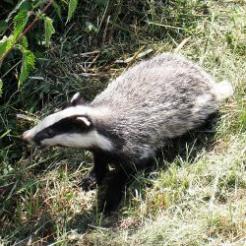The High Court yesterday heard evidence from the Badger Trust for the judicial review, brought by the charity, into the government’s decision to cull badgers.
The case is being heard before Mr Justice Ouseley and the court will continue to hear evidence today, with a decision expected in the next few weeks.
Jack Reedy, spokesman for the Badger Trust, told civilsociety.co.uk that the case could cost the charity “at least £100,000” in legal fees.
Chairman of the Badger Trust David Williams said: “We stand alone in initiating this action and raising funds for it.”
The Trust is funded by contributions from local badger groups as well as donations from members of the public. In its last financial year (January 2011 to December 2011) it had an income of £120,000, according to accounts filed with the Charity Commission.
He added: “The Trust acts on behalf of local badger groups across the UK and the Republic of Ireland, and we see it as our duty to use all legal means of persuasion and scientific argument to overturn this decision which risks making a bad situation even worse.”
Legal case
The Badger Trust is asking the court to overturn the Secretary of State for Environment and Rural Affairs, Caroline Spelman’s decision to authorise the culling of badgers, on the grounds that it is legally flawed.
Trust solicitor, Gwendolen Morgan of Bindmans LLP, said: “First, the proposed badger cull will cause rather than prevent disease in cattle. This fails the legal test for licensing.
"Second, in terms of its cost-benefit analysis, Defra made a decision on basis A, when in reality the plan may well be rolled out on basis B. As a matter of public law, that is unlawful. Finally, the guidance to Natural England is legally flawed.”
The cost/impact assessment carried out by Defra was only based on the farmer free-shooting option and did not allow for the possibility that this may be ruled out for being inhumane, meaning that farmers would be obliged to use the more costly method of trap and shoot.
It argues that because killing badgers was not one of Natural England’s original functions, and that under section 10(2)(a) of the Protection of Badgers Act 1992, responsibility for culling badgers is the responsibility of the Secretary of State.
A judicial review of a similar decision to cull badgers by the Welsh Assembly Government in 2010 found in favour of the charity and in March 2012 the Assembly announced it would vaccinate all badgers.
Defra announced in December 2011 that it would authorise Natural England to issue licenses to cull badgers to tackle bovine tuberculosis. The Badger Trust announced its decision to take legal action in February was granted a the judicial revue in April 2012.
A Defra spokeswoman said the government could not comment on the court case but that: “Bovine TB is a chronic and devastating disease. It forced the slaughter of 25,000 cattle in 2010 alone, and is taking a terrible toll on our farmers and rural communities.
“Nobody wants to cull badgers. But no country in the world where wildlife carries TB has eradicated the disease in cattle without tackling it in wildlife too. We are investing in the development of usable vaccines but sadly these are still years away, and we have to take action now.
“Unless TB is effectively dealt with it will cost taxpayers around £1bn over the next ten years.”








